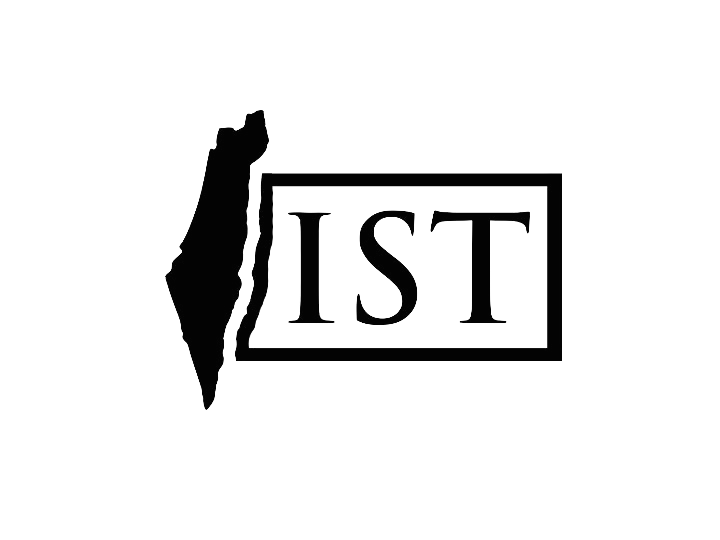November 23, 2013
Day three dawned as cold as our first two days, but with the dreaded promise of rain. After a hurried breakfast and packing of rain jackets, we were on our way to the old Lublin Jewish cemetery.
It was decidedly wrecked: more so than the cemetery in Warsaw. The bleak atmosphere was reflected in the stick-thin trees and the general disrepair. Moss clung to each and every headstone, and grass was sparse. Instead, crunch-less autumn leaves carpeted the already wintered ground.
David took my group through the cemetery, explaining the history of the place as he went. Nazis and Poles alike were responsible for their fair share of damage; graves had been smashed and one even sported the wounds of a shell. One had to wonder just how damaged the graves had to be to warrant refurbishments; a few were enclosed with wrought-iron fences; these, we learned later, were the oldest graves, or ones belonging to great tzaddikim of Lublin. There was the Maharshal, who invented the custom of the festive bar mitzvah meal, much to Passion8’s great delight, and the great Choze of Lublin. It was upsetting to see how much disrepair the cemetery was now in, due to the lack of a Jewish community in Lublin to take care of it. It made me think about how much the Nazis truly wanted to destroy the Jews, even once they were already dead.
Our next stop was the old Lublin yeshiva, where we learned a little gemara ourselves. As we read together, I couldn’t help but wonder about the great students who learned there (history of learning that is held so dear in our community). Regrettably a hotel now, the yeshiva, once the greatest in the world, is vacant, its Jewish learners missing. Rabbi Benji asked us to take control of something that the Nazis tried to take from us; it definitely made me determined to do some more learning when we get to Israel.
We took the bus outside of Lublin, the sun was shining, we were singing; this was a simple, interesting school tour--until David said, “Look to your right. What do you see?”
And there it was...
Majdanek.
It stood there, an ominous presence, side by side with the living city of Lublin. I was stunned into silence.
The laughing around me stopped abruptly.
As we prepared to enter the camp, mundane talk concealed our nerves and anticipation for what was to come. We did not know what to expect; we had only seen graveyards and the remnants of pits, and the monuments at Treblinka. This would be--this was--nothing like anything we had seen before.
I stood at the entrance and looked at the vast expanse of land surrounded by the once electric fences topped with barbed wire. So this was what complete captivity looked like. I was filled with dread.
Rugged up in Kathmandu and Mountain Design gloves and scarves, I was acutely aware of all that I owned. We trudged along the paths they once walked in Israeli flags, draped across shoulders, and moved --into the showers, the entrance to the gas chambers.
It was one of the most confronting things I have ever experienced. Housed together in the claustrophobic room, we stood. People cried; I cried, some of us were desperate to get out. We stood in a circle, arms around each other, the living descendants and sung for those people that could not. In that moment we were the voice of those six million Jews and millions of others who were silenced--nameless, each individual reduced to a number that was burned on shivering skin, but no less regretted.
It is one thing to hear of facts and statistics of Majdanek, however, it is another to see them and their ash piled high under the memorial monument. Real human ash--
Even after the tears had dried, and as we watched Majdanek grow smaller in the distance as we drove away, it was hard to conceptualize. I thought that seeing the camps might make it easier to comprehend what happened, but after going there, I no longer believe that comprehension of the Shoah is possible. It seems that the English language has glitched: no words, no phrases, no metaphors or analogies could ever depict the horror of the remnants of the camp. And I cannot help but think what it must have been like for the people sixty-eight years ago. What seemed a silent, empty hell today was once alive with the barely-breathing bodies of our people. Alive with the officers who barked orders; alive with the people who watched on from the homes across the road. In some ways, it is even harder to fathom how people could have orchestrated such horrors, and how people could have watched on and done nothing.
As we sung Hatikvah, I truly felt the power of what we had seen, where we had walked, what we had done. I felt the history of the Jewish people, from the stories in the Torah to the stories of Holocaust survivors, connecting all of us. And I felt, more than ever, that coming on this trip will be one of the most important things I do in my whole life.
